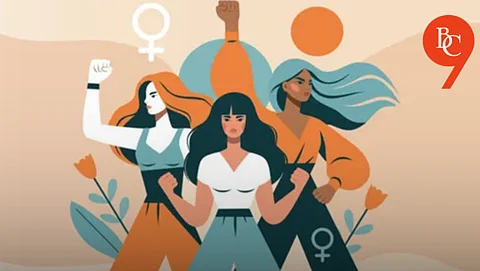

Pune, a city celebrated for its culture and intellect, is also a city of women with unshakeable opinions and a fierce sense of courage. Recent headlines, be it the tragic Vaishnavi Hagawane case, the Hadapsar live-in controversy, or the everyday battles against social and political odds might suggest a city in turmoil. But look closer, and you’ll see a different story: one of women who refuse to be silenced, who have always learned to take a stand, not just for themselves but for the greater good.
The case of Vaishnavi Hagawane, which has gripped Pune’s conscience, is not just a story of tragedy; it is a story of a community that refuses to let injustice go unchallenged. Even as her family faces threats and intimidation, they persist in their demand for justice, supported by women’s groups and activists who have long made Pune a hub for gender rights movements. The city’s collective outrage is not a sign of weakness, but of a society that stands up and speaks out, even when the odds seem insurmountable.
Pune’s history is dotted with examples of women who led from the front. In 1951, Pune elected Indirabai Maydeo as its representative to the first Lok Sabha, a Gandhian and a freedom fighter who championed education and employment for women. Decades before “women’s empowerment” became a buzzword, Pune’s women were shaping policy and public life, setting benchmarks for the rest of the country.
Today, that legacy continues. Pune ranks among India’s top five cities for working women, thanks to its inclusive environment, efficient public institutions, and opportunities for professional growth. Whether in boardrooms, classrooms, or on the streets, Pune’s women are making their voices heard.
It’s not just the high-profile cases or political milestones that define Pune’s women. Every day, women in Pune’s gig economy; chai sellers, beauticians, tutors, domestic workers, embody resilience and independence. They are the backbone of the city’s informal sector, balancing survival with ambition, and proving that strength is not just about fighting battles in courtrooms but about winning the war for dignity and self-reliance.
Movements like “Meri Raatein, Meri Sadakein!” see women reclaiming public spaces at night, sending a clear message: the streets belong to them too. These acts of collective courage are rewriting the rules of safety, freedom, and visibility for women across the city.
Pune’s progress isn’t accidental; it’s the result of decades of activism, community support, and a refusal to accept the status quo. Organizations like Nari Samata Manch and the Asmita movement have created safe spaces, provided legal and emotional support, and championed the cause of women’s dignity and empowerment. The city’s women have learned to take a stand not just for themselves, but for each other.
Every challenge whether it’s a dowry death, a live-in relationship controversy, or political mudslinging, only sharpens the resolve of Pune’s women. They know that their strength lies not just in individual grit, but in collective action and the courage to speak up for what’s right. In Pune, women are not waiting for someone to give them power; they are claiming it, every single day.
